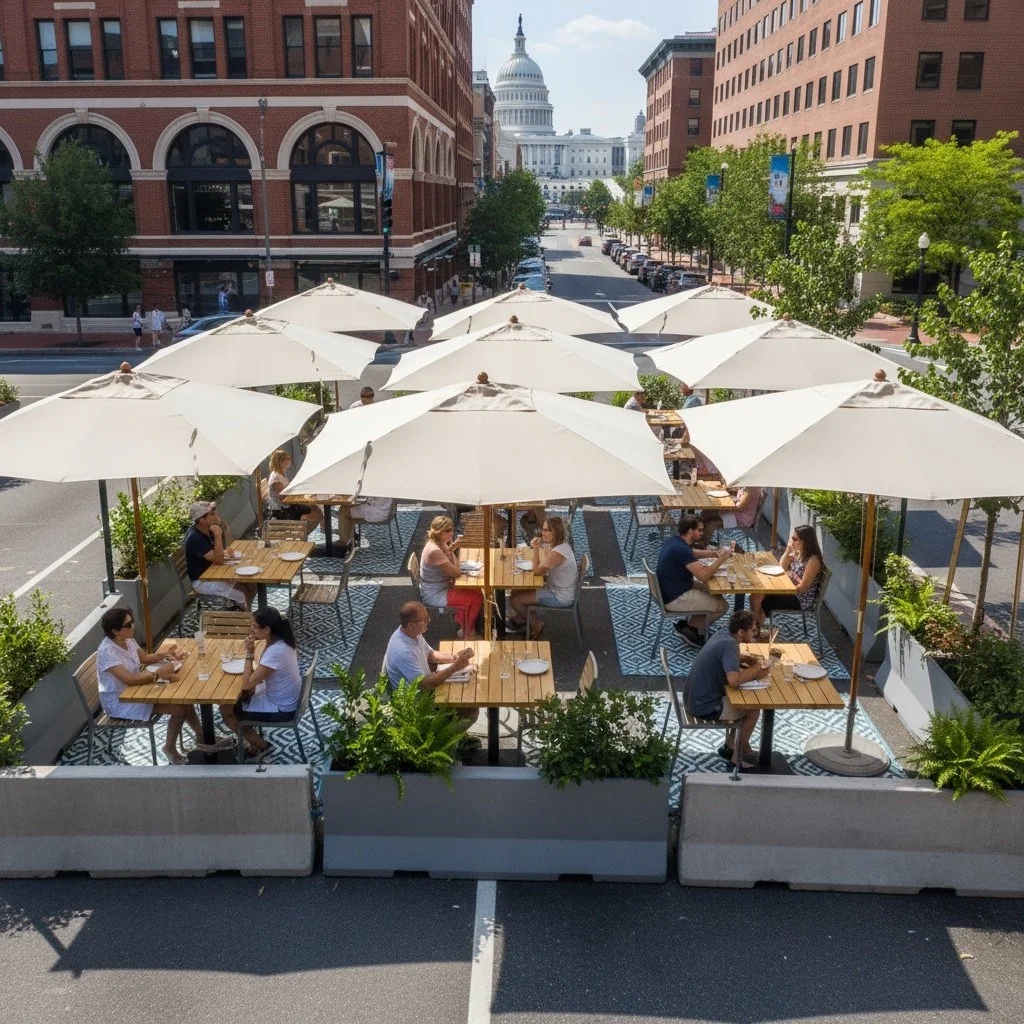
Expert DC Permit Guides: Building Permits, C of O & More
Welcome to our blog, where we provide information and guidance on the permitting process in DC. We aim to help individuals and businesses navigate the requirements and regulations involved in obtaining necessary permits. Please find below an overview of the permitting process, including the types of permits required, application procedures, and relevant contact information.

DC Public Space Permit Denied: Why It Happens & How to Avoid It
In 25+ years, we've obtained every public space permit we've applied for. Not because we're lucky—but because we contact DDOT before we design. This guide reveals why most permits get denied and the exact process to avoid denial entirely. 100% approval rate.

DC Streatery Design Permits: Complete Guide to DDOT's Permanent Program
Your temporary COVID-era streatery permit expires November 30, 2025. DC's new permanent program requires strict design, safety, and accessibility standards—and coordination across five District agencies. Without expert guidance, restaurants face months of delays, costly rejections, and lost outdoor dining revenue. Learn what's changed, common permit mistakes, and how to navigate DDOT's complex multi-agency approval process before it's too late.

Traffic Control Plans in Washington D.C.: Complete Guide to DDOT Requirements and Safety Compliance
When working in Washington D.C.'s public right-of-way, understanding traffic control plan requirements is crucial for project success, public safety, and regulatory compliance. The DC Department of Transportation (DDOT) mandates specific traffic management protocols that protect both workers and the traveling public while maintaining efficient traffic flow throughout the District.

Navigating Washington, D.C.'s Public Space Permit Process: A Complete Guide to Traffic Control Plans and Project Success
Public space permits are required for any activity that impacts District-owned property, including sidewalks, streets, parking areas, and other public right-of-way. These permits ensure that private projects don't compromise public safety, accessibility, or the efficient flow of traffic and pedestrians throughout the city.
